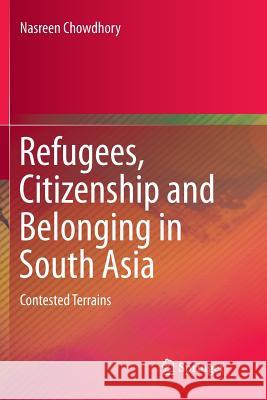Refugees, Citizenship and Belonging in South Asia: Contested Terrains » książka
topmenu
Refugees, Citizenship and Belonging in South Asia: Contested Terrains
ISBN-13: 9789811343575 / Angielski / Miękka / 2019 / 181 str.
Kategorie:
Kategorie BISAC:
Wydawca:
Springer
Język:
Angielski
ISBN-13:
9789811343575
Rok wydania:
2019
Dostępne języki:
Ilość stron:
181
Waga:
0.29 kg
Wymiary:
23.39 x 15.6 x 1.09
Oprawa:
Miękka
Dodatkowe informacje:
Wydanie ilustrowane











